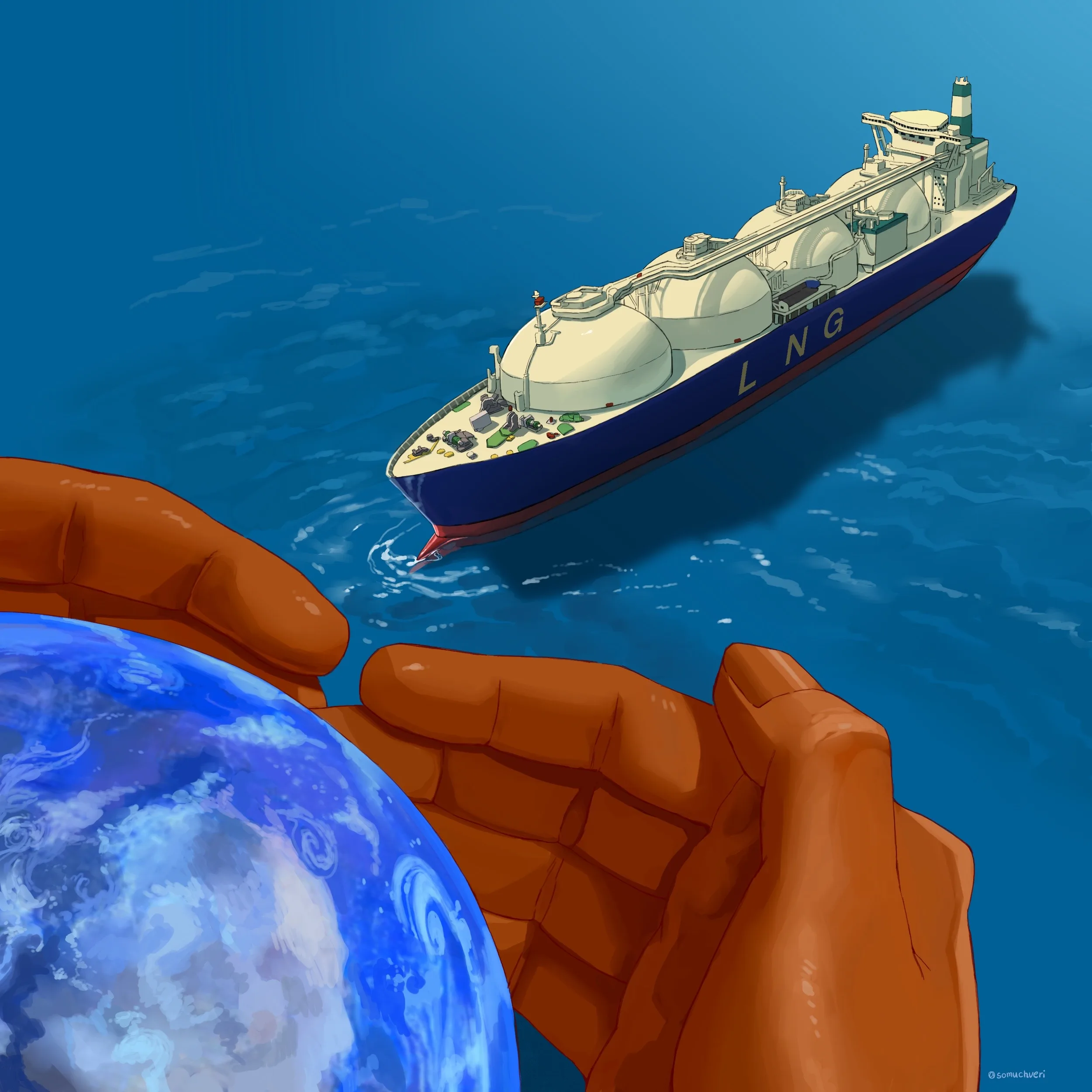Factsheet: Beyond LNG Shipping for a Just and Equitable Transition
Socially and environmentally vulnerable communities are more exposed to the direct impacts of Liquefied Natural Gas (LNG) extraction, processing, and operation. Here are five reasons why LNG does not belong in a “just and equitable” transition.

As we move towards zero-emissions and environmentally-sustainable societies, the concept of a “just transition” ensures that no one is left behind.
The United Nations Conference on Trade and Development (UNCTAD) has highlighted five key elements of a just and equitable transition for shipping: Environmentally Effective, Procedurally Fair, Globally Equitable, Technologically Inclusive, and Socially Just. Within the context of this framework, here are five reasons why the use of Liquefied Natural Gas (LNG) as a shipping fuel is incompatible with such a transition.
- LNG is Not Environmentally Effective: From a well-to-wake (lifecycle) approach, LNG does not reduce greenhouse gas emissions. Its significant methane emissions moves the shipping sector farther away from the 1.5°C/Paris goal. LNG production also consumes billions of gallons of water, impacting local farmers and agricultural operations. Furthermore, if methane emissions are not significantly reduced, we will see annual crop losses up to 25 million tonnes.
- LNG Worsens Global Equity: Climate change impacts from the methane emissions of LNG directly threatens the existence of Small Island Developing States (SIDS), Least Developed Countries (LCDs), LDCs, and Indigenous Peoples. LNG shipping should be held accountable for its role in contributing to 25% of methane-induced global warming.
- LNG Exacerbates Local Inequalities: Contaminated drinking water and air quality from LNG facilities are exacerbating environmental racism in nearby low-income and racialized communities. Historical and existing violence against Indigenous communities is also intensified at points throughout the LNG lifecycle, often lacking “free, prior and informed consent”.
- LNG Impacts Workers Safety: Oil and gas workers are exposed to seven times the risk of death compared to the average industry risk. Justice for workers also extends into their local communities impacted by LNG facilities. For example, LNG’s chemical pollution affects pregnant women’s homes near LNG fracking sites, with even higher levels in the homes of Indigenous women.
- LNG Stunts Zero-Emissions Solutions: As countries move towards net-zero emissions and technological inclusivity, wasted investments into LNG ships are estimated at $850 Billion. Investing in LNG as a shipping fuel diverts resources and momentum away from the transition towards long-lasting, zero-emissions technologies and fuels.
Choosing LNG as a marine shipping fuel risks leaving people behind.
Socially and environmentally vulnerable communities are more exposed to the direct impacts of LNG extraction, processing, and operation. As global shipping demands continue to grow, these communities are at risk of being left behind, burdened by the expansion of LNG. Urgent global solidarity and cooperation are required to prioritize these communities, supporting them at the forefront of a “just and equitable” transition to zero-emissions shipping and ensuring a livable future for all.
For references and further reading, contact [email protected].